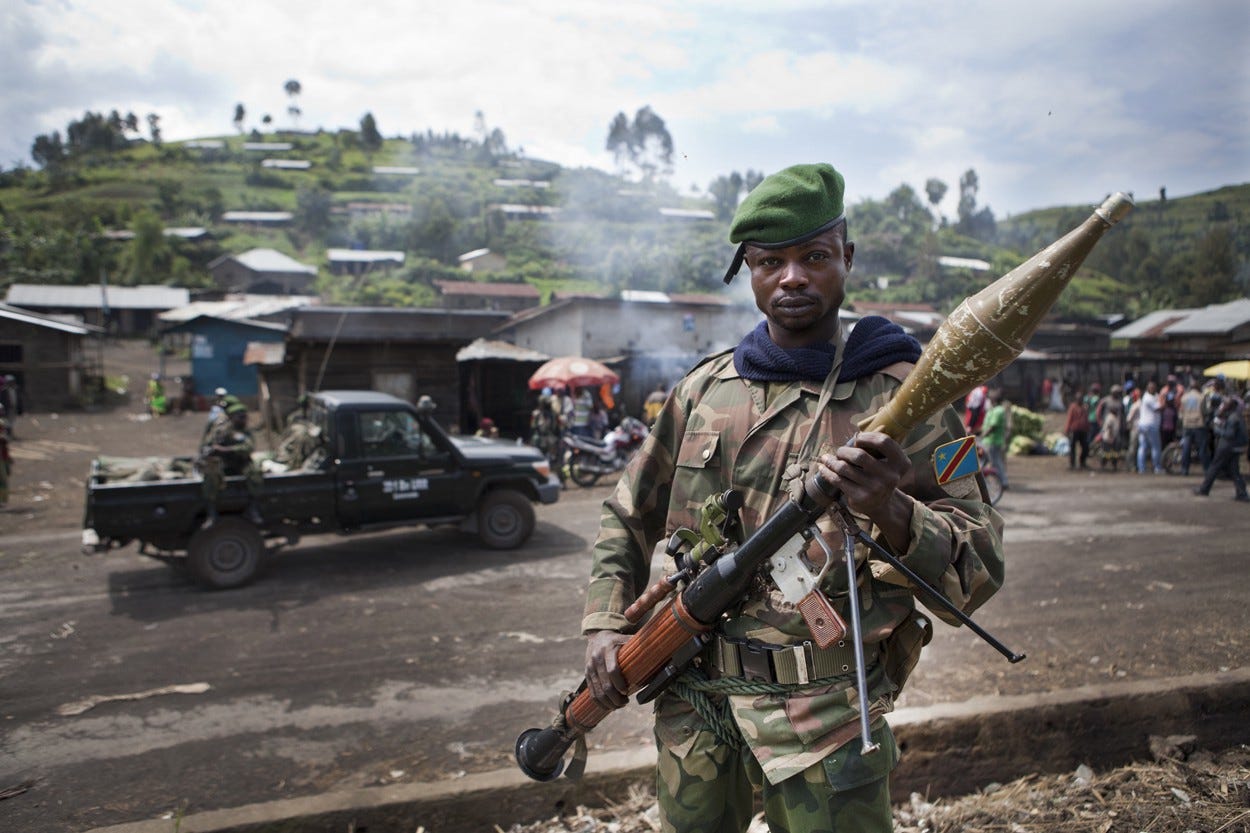At the geographic epicenter of Africa lies perhaps its oldest post-colonial security vacuum in the eastern Democratic Republic of the Congo (DRC). Today, there are several reasons for the lingering insecurity such as a lack of impactful investment from foreign countries, poor governance in Kinshasa, and rampant militancy in the east.
One country that is often criticized for its role in the deterioration of security in the Congo is Rwanda. When examining this angle of the crisis in the DRC, one must note how far back the relationship between militants in the Congo and the Rwandan government goes.
A baseline for the political violence in contemporary DRC could be the events of 1994, in which ethnic genocide from neighboring Rwanda spilled across the border in the form of displaced people and later militant groups. During that year, one of the worst incidents in the country’s post-Cold War history took place, in which at least 700,000 people were killed over a hundred-day period as the Hutu-led government in Rwanda tried to eradicate the Tutsi minority. Many Hutu were driven from the country and sought refuge in the eastern DRC. The former Rwandan Army actually reformed in the DRC and became the FDLR (Democratic Forces for the Liberation of Rwanda). The FDLR has remained active to this day and was accused of assassinating the Italian Ambassador to the DRC while on a visit to the east back in 2021. Despite its ongoing militant activities, the FDLR has not been designated as an FTO by the US State Department.
Most analysts monitoring the tensions between the DRC and Rwanda focus on the period known as “the Congo Wars”. The first conflict occurred in 1996 as both Rwandan and Ugandan troops entered the country in an effort to root out the FDLR. This conflict led to political change as the long-term leader Mobutu Sese Seko lost power and was replaced by Laurent Kabila, then backed by a Ugandan and Rwandan joint effort.
The Second Congo War, or “Africa’s World War” as is it popularly known, began in 1998 after then Congolese President Laurent Kabila had a falling out with his Ugandan and Rwandan allies, and demanded that their troops leave the eastern part of the country citing concerns that both countries would attempt to annex the mineral-rich Kivu provinces. The Rwandans announced in February 2009 that their forces would indeed withdraw. This announcement did not impress the United Nations Security Council (UNSC). The UNSC approved Resolution 1304 in June 2000, which mandated both Rwanda and Uganda remove their forces from the Congo. It would not be until 2002 that it was confirmed that Rwandan troops had formally evacuated from the Congo.
The end of the Congo Wars did not alleviate the tensions between Kinshasa and Kigali by any means. A brief period of harmony existed in 2009 when the Rwandan military assisted their Congolese counterparts with an offensive against the FDLR before withdrawing after achieving their objectives of degrading militant groups such as the FDLR and the CNDP (National Congress for the Defense of the People). One of the factions of the CNDP would later reemerge as the March 23rd Movement (M23).
The issue of militancy in the DRC’s east remains an irritant in relations between the two countries. Since 2012, Rwanda has been accused of supporting M23 militants in the eastern DRC. The group was defeated in 2013 and agreed to disarm and disband. After a hiatus in violence that has lasted nearly a decade, M23 has resumed its operations.
Tensions between Rwanda and the DRC have become acute this year. So far in 2022, the DRC has strengthened ties with both Uganda and Burundi. As a brief by the Center for Strategic and International Studies commented, “This is bound to raise fears in Kigali that its influence in the DRC is waning”. Perhaps this is one of Kigali’s primary motives for supporting M23.
Insecurity in the region remains a source of tension. The recent conflict near Goma has led to tit-for-tat allegations being levied by both Kinshasa and Kigali once again. The DRC accuses Rwanda of supporting M23, and Rwanda accuses the DRC of supporting Hutu rebels and the FDLR. This is a cycle that appears to have no end.
At this point, after three decades of instability, cross-border incidents including shelling and attacks on border posts seemingly occur on a daily basis. Unchecked militant activity has led to two wars between Rwanda and the DRC, and it appears that there is a real possibility of a third unless there is purposeful mediation.



